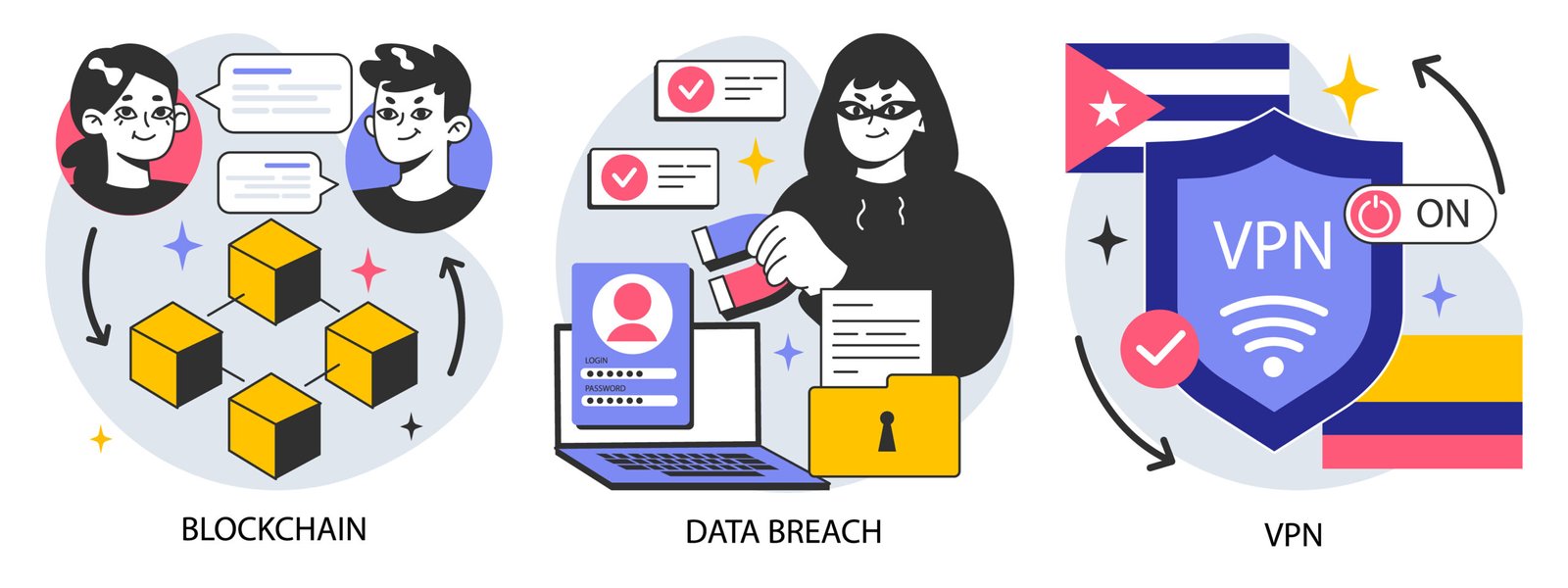In today’s digital age, the proliferation of electronic devices is a double-edged sword. While technology enhances productivity and connectivity, it also raises significant concerns about data security and electronic waste (e-waste). When businesses and individuals upgrade their devices or replace outdated electronics, the improper disposal of these devices poses serious risks, particularly if sensitive data is not adequately destroyed.
E-waste encompasses discarded electronic devices such as computers, smartphones, tablets, and printers, many of which contain sensitive information. If these devices are not disposed of properly, they can become gateways for cyber threats. In this blog, we’ll explore the importance of safe data destruction in electronic recycling and how effective data destruction methods protect against potential cyber threats.
The Data Security Risks of E-Waste
Every electronic device we use has the potential to store sensitive information—emails, passwords, financial records, customer data, and even proprietary business information. When these devices are disposed of without proper data destruction, they can expose this information to unauthorized access. Here are some key risks associated with improper e-waste disposal:
1. Data Breaches

Data breaches occur when sensitive information is accessed without authorization. If discarded electronics contain recoverable data, they can be targeted by cybercriminals. A single data breach can lead to substantial financial losses, legal ramifications, and irreparable damage to a company’s reputation.
2. Identity Theft
For individuals, improper disposal of old electronics can lead to identity theft. Cybercriminals can retrieve personal information from discarded devices to impersonate victims, access financial accounts, and engage in fraudulent activities. The consequences of identity theft can be long-lasting and devastating.
3. Intellectual Property Theft

For businesses, the risks extend beyond customer data. Discarded devices can contain valuable intellectual property, trade secrets, and sensitive internal communications. If this information falls into the wrong hands, it can lead to competitive disadvantages and substantial financial losses.
4. Regulatory Compliance Issues
Organizations that fail to protect sensitive data during the disposal of electronic devices may face legal penalties and compliance issues. Data protection regulations, such as the General Data Protection Regulation (GDPR) and Health Insurance Portability and Accountability Act (HIPAA), mandate that businesses take appropriate measures to secure personal data. Failing to do so during e-waste disposal can lead to significant fines and reputational harm.
The Importance of Safe Data Destruction
To mitigate these risks, safe and effective data destruction methods must be employed during the recycling of electronic devices. Here’s why data destruction is crucial for e-waste management:
1. Preventing Unauthorized Access

The primary goal of data destruction is to eliminate the risk of unauthorized access to sensitive information. By ensuring that all data is permanently erased from a device, organizations can protect themselves from potential cyber threats.
2. Compliance with Data Protection Regulations
Implementing secure data destruction practices helps businesses comply with legal requirements regarding data protection. By properly destroying data on electronic devices before disposal, organizations can demonstrate their commitment to safeguarding sensitive information and maintaining compliance with regulations.
3. Enhancing Consumer Trust

For businesses, demonstrating that data security is a priority can enhance consumer trust. Customers are increasingly concerned about how their personal information is handled. By implementing safe data destruction practices, businesses can build a reputation for responsible data management, fostering loyalty among consumers.
4. Protecting Intellectual Property
Data destruction protects valuable intellectual property from being accessed by competitors or malicious actors. By ensuring that sensitive company information is completely destroyed, businesses can safeguard their competitive advantage and protect their innovations.
Effective Data Destruction Methods
To effectively protect data during the e-waste disposal process, organizations should employ one or more of the following data destruction methods:
1. Data Wiping

Data wiping involves using specialized software to overwrite existing data on a device multiple times, making it virtually impossible to recover. This method is commonly used for hard drives, SSDs, and other storage devices. Certified data wiping tools meet industry standards for secure data deletion, ensuring compliance with regulations.
2. Data Degaussing
Degaussing is a method that uses a powerful magnetic field to disrupt the magnetic storage patterns on hard drives and magnetic tapes, rendering the data unrecoverable. This method is particularly effective for traditional hard drives, but it does not work on solid-state drives (SSDs) or flash memory devices.
3. Physical Destruction

Physical destruction is the most secure method of data destruction. This involves shredding, crushing, or incinerating the storage media to ensure that data cannot be retrieved. Devices like hard drives, SSDs, and CDs can be physically destroyed to eliminate any possibility of data recovery.
4. Professional Data Destruction Services
For businesses handling large volumes of e-waste, partnering with a certified data destruction service can streamline the process. Professional data destruction companies specialize in securely erasing or destroying data from old electronic devices while providing certificates of destruction for compliance purposes.
Best Practices for Data Security During E-Waste Disposal
To enhance data security during the disposal of electronic devices, consider the following best practices:
Create a Data Disposal Policy
Establish a clear policy for data destruction during the disposal of electronic devices. Outline procedures for data wiping, degaussing, or physical destruction, ensuring that all employees understand the importance of data security.
Train Employees
Conduct training sessions for employees on the importance of data security and the proper procedures for disposing of old electronics. Ensuring that everyone is aware of the risks and responsibilities can help prevent data leaks.
Document Data Destruction
Maintain records of all data destruction activities, including the methods used and the devices processed. This documentation can serve as proof of compliance with data protection regulations and can be useful in the event of audits or legal inquiries.
Partner with Certified Recyclers
Establish a comprehensive policy for data destruction during the disposal of electronic devices. Outline specific procedures for data wiping, degaussing, encryption, or physical destruction, ensuring that all employees fully understand the importance of robust data security.
Conclusion
As technology continues to advance, the importance of safe data destruction during e-waste disposal cannot be overstated. Organizations must take proactive measures to protect sensitive information and prevent data breaches, identity theft, and legal repercussions. By employing effective data destruction methods and partnering with certified recyclers, businesses can ensure that they manage their e-waste responsibly while safeguarding their data.
At Advaya E-Waste Management, we specialize in providing comprehensive e-waste recycling solutions that prioritize data security. Our certified data destruction services ensure that your sensitive information is securely erased, protecting your business and fostering trust with your customers. Contact us today to learn more about our data destruction and e-waste recycling services.




